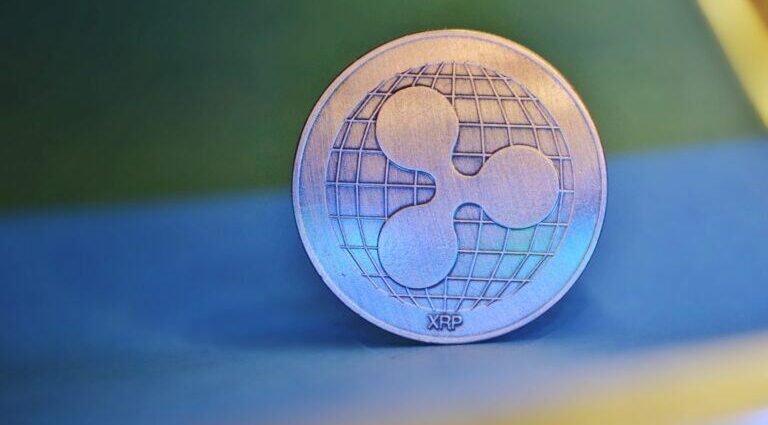Recently, a former Goldman Sachs executive explained why he had “no issue” with XRP, the native digital asset of the open-source public XRP Ledger (XRPL), which was created in 2012 by David Schwartz, Jed McCaleb, and Arthur Britto.
Prior to founding macro economic and investment strategy research service Global Macro Investor (GMI) in 2005, ex-Golan executive Raoul Pal co-managed the GLG Global Macro Fund in London for global asset management firm GLG Partners (which is now called “Man GLG”). Before that, Pal worked at Goldman Sachs, where he co-managed the European hedge fund sales business in Equities and Equity Derivatives. Currently, he is the CEO of finance and business video channel Real Vision, which he co-founded in 2014.
According to a report by The Daily Hodl, earlier this week, during an “Ask Me Anything” session streamed on YouTube channel “Real Vision Crypto”, Pal had this to say about XRP:
“I’ve said this a gazillion times, XRP has a real use case. It is being used as a protocol… I think there’s a gap risk higher if they get the ruling. There’s no gap risk lower as much. There should be some speculation.
“But it’s being used and a chain that’s being used for money transmission is a chain that has Metcalfe’s Law. So I have no issue with it. I own a small part.“
https://youtube.com/watch?v=yAE3h_AYkts%3Ffeature%3Doembed
Last week, FinTech firm Ripple took a closer look at the rapid growth this year of its On-Demand Liquidity (ODL) solution.
In a blog post published on 15 November 2022, Ripple started by pointing out that it has “recently announced various new ODL customers” and that “ODL payout markets” include Africa, Argentina, Belgium, Israel, Australia, Brazil, Singapore, the UAE, and the UK.
It then explained the motivation behind ODL:
“Introduced in 2018, ODL was initially built to ease the frictions associated with low value, high volume cross-border payments such as remittances, including high transaction fees, slow settlement times, and minimal transparency. This crypto solution has been a step in the right direction to create a more financially inclusive future for economies around the world. While the pillar of financial inclusion still remains, ODL has proved a valuable asset to a number of different use cases including small-medium enterprise payments, internal treasury flows, paying out marketplace vendors and more.“
One ODL customer is Hai Ha Money Transfer, the CEO of which — Dianne Nguyen — said:
“Ripple’s ODL solution answers the industry’s age-old problems of pre-funding and speed of fund settlement. Since partnering with Ripple and utilizing ODL, we’ve been able to better manage our capital requirements and funding flows, thereby allowing us to offer a near real-time payout for our customers without having to worry about the time it takes for funds to hit our bank accounts. Being able to efficiently access upfront capital to provide an enhanced service for our customers is the holy grail for our business.”
Ripple has also added machine learning capabilities to its ODL solution to improve customer experience. Ripple notes that “this technology makes the payment process more efficient for our customers, while managing liquidity at the utmost level to support a range of transaction types.”
Devraj Varadhan, SVP of Engineering at Ripple, had this to say:
“As Ripple’s products reach significant growth and scale in 2022, we continue to invent and deliver solutions to sustainably grow and offer best-in-class experience on behalf of our customers. Ripple’s machine learning and automation efforts are focused on liquidity – the backbone of crypto and all of our enterprise-grade products.
“We’re excited to launch several of those capabilities this year to scale ODL efficiently to serve more customers globally and to provide the best experience possible for our customers.“
Stuart Alderoty, who is FinTech firm Ripple’s General Counsel, says that although his firm still has quite a lot of employees inside the U.S. (presumably since the headquarters are in San Francisco), it is “effectively” operating outside the U.S.
According to a report by CNBC, Alderoty told them:
“Essentially, its customers and its revenue are all driven outside of the U.S., even though we still have a lot of employees inside of the U.S.“
Ripple’s General Counsel also told CNBC that Ripple, which currently has two employees based in the Republic of Ireland, it is aiming to get a a virtual asset service provider (VASP) license from the Central Bank of Ireland in order to “passport” its services throughout the EU via this Irish entity. Furthermore, Ripple is apparently intending to get ab electronic money license in Ireland in the near future.
Image Credit
Featured Image via Pixabay
Source: Read Full Article
-
Litecoin (LTC) Price Analysis: Bulls Struggle To Protect $50
-
Court confirms Celsius bankruptcy exit plan, $2B in crypto to go to creditors
-
ShapeShift responds to Sen. Warren’s comments to ‘set the record straight’
-
'Worst code I've ever seen': Euro stablecoin faces centralization criticism
-
Is Bitcoin overheated? Some believe the answer is hiding in PEPE

